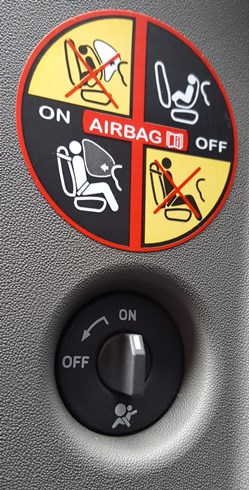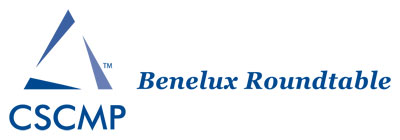Airbags and Supply Chain Leadership
The replacement of 34 million airbags that the automotive part manufacturer Takata has to execute in what is one of the biggest recalls ever, cannot easily be underestimated. Apparently, the airbag inflators were not properly sealed leading to unexpected explosions. To make things worse, due to the error, shrapnel might be released during the burst leading to six death and hundreds of injuries so far.
In supply chain perspective, recalls are very complex. I have been involved in multiple recall operations and learned that it impacts the complete organization. From the first signals of an issue where the severity needs to be investigated, to finding the root cause and a proper solution, and executing the replacement.

Companies find themselves in a squeeze and the discussion are often on the level of business ethics, especially in cases where there is ambiguity whether a reported issue is unique or impacting more customers. Companies might hesitate to take immediate action, foremost when there is no solution at hand. When to alert your customers and authorities? This leads to a very important point that a company is viewed as a superior industry leader, or a lagging looser; proactive leadership.
A couple of weeks ago I was at the CSCMP conference in Spain, where Operational Excellence expert professor Joseph Paris gave a powerful example how proactive leadership can make a difference. He mentioned another recall from the automotive industry, where GM had troubles with the ignition key and how this is dragging along for many years on a row. GM has been aware for already a long time, but according to Paris, action was only taken after public pressure. Now they are facing many law suits, a diminished image and worst of all many injured and even deceased consumers. Paris compared this with Tesla, and its response to a battery fire that took place in 2013. Within 24 hours, Tesla formed a team of 20 engineers immediately taking action to find out everything about the incident. They tackled the issue head on and were able to update the government on their progress, instead of being summoned and fined. This is all about leadership and ‘staying in charge of the narrative’ as Paris called it.

With this in mind, coming back to Takata, I am beginning to get a bit worried for them, especially when focussing on the leadership involved. In an article in the Dutch Financieele Dagblad the other day, chief executive Shigehisa Takada was described as ‘nice, sensitive and sincerely, but lacking decisiveness’. Allegedly, he has been dodging the airbag issue and certainly has not been in charge of the narrative, as Professor Paris would call it. Although Honda, as one of their customers, initiated the first recall related to the Takata airbarg in 2008, only in May 2015 mr. Takada made an agreement with the US authorities on how to deal with the issue.
So what role can supply chain play in the event top level management seems to underestimate these issues? In my experience there are two major areas of influence, which both cannot be seen in isolation from eachother or from daily operations. Within the context of a potential recall the most important action to prepare yourself for one, is to create traceability with clear metrics including financial impact throughout your organization. Secondly, design for resilience as something goes wrong. By quickly identifying and responding you can become a major enabler in mitigating risk, as well as helping your board understand the impact and size of a potential recall.
I have no insight whether Takata supply chain leadership has taken these measures, however I hope the acknowledgement of the issue is a turning point to become more pro-active and responsive. Otherwise, this issue might be the beginning of the end of the company. If it is not because the huge impact on operations and finance, it could be because deteriorated image and lack of trust by their customers. Anyhow, it will be a tough time for Takata and I hope their operational contingency plan is better than their airbag.
By Jeroen Bolt. Jeroen is President of the CSCMP Benelux Roundtable and founder of Fluas. This blog is also published by Supply Chain Movement.
© 2015 - 2024 Stichting CSCMP Benelux | All rights reserved | Privacy Policy |Disclaimer | Login
